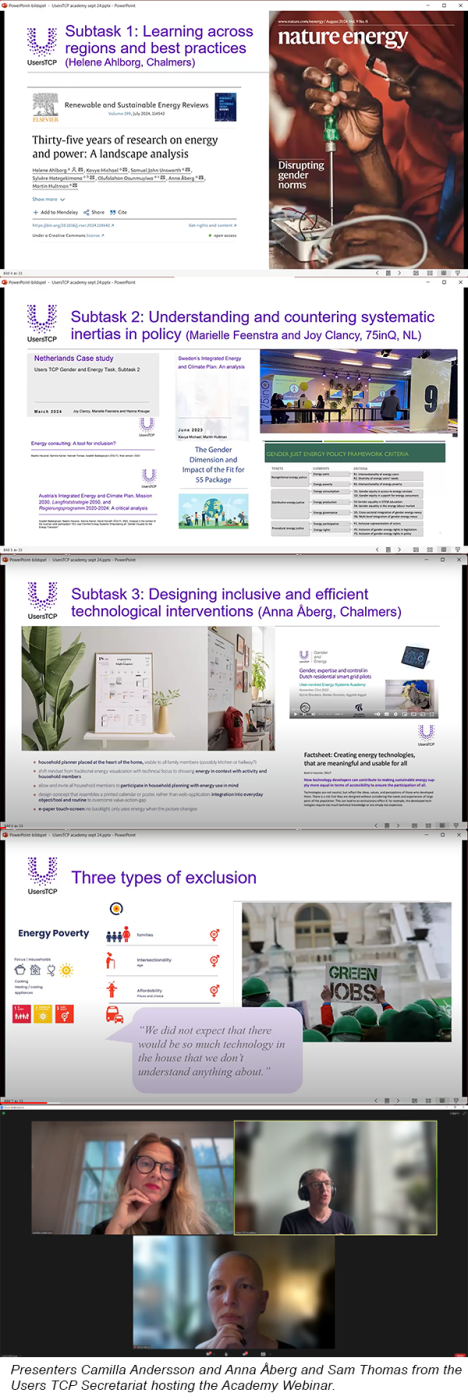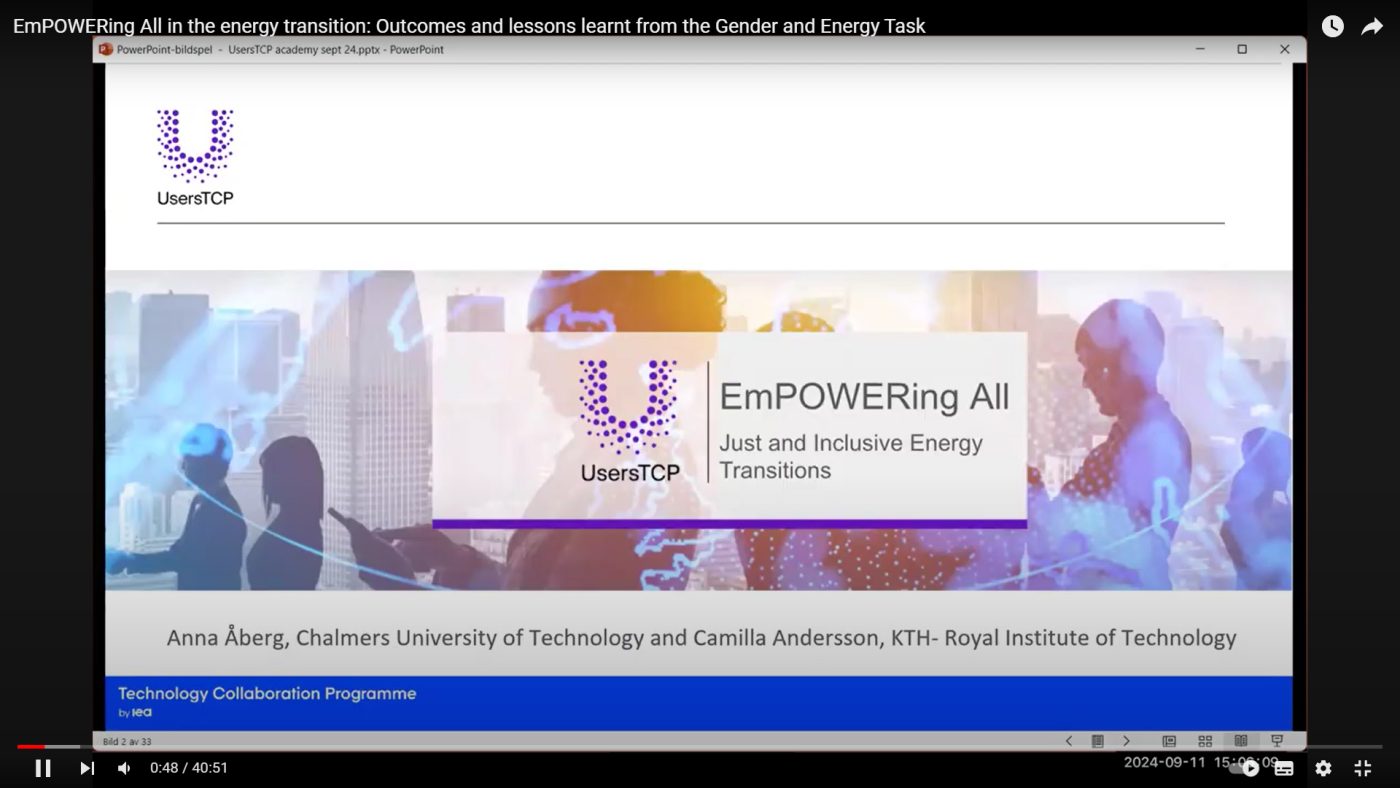
The Gender and Energy Task – full name “Empowering all: Gender in policy and implementation for achieving transitions to sustainable energy” – started in January 2021 and is now about to wrap up three years of successful work. For example, the Task has contributed to both the OECD EPIC household survey and the European Parliament’s Committee on Women’s Rights and Gender Equality (FEMM) report on the Fitfor55 programme, in addition to producing a number of different case studies, policy briefs and other publications.
A new phase called “EmPOWERing All: Just inclusive Energy Transitions”, will take off next year.
On Wednesday 11 September, Task Leader Anna Åberg presented outcomes and lessons learnt so far from the Task at a User TCP Academy webinar. Departing from the challenges defined in phase one, Camilla Andersson outlined the work planned for phase 2 of the Task. This phase is scheduled to start in early 2025 and Camilla will step in as Task Leader.
In phase 1, the researchers have identified three types of exclusion: energy poverty, exclusion from from current technology and policy interventions as well as knowledge and expertise exclusion. These types of exclusions tend to affect women more than men , and especially older women. But other deprived groups, like low income groups and rural populations, are also affected. This is clear from policy reviews, case studies and identification of drivers of exclusion carried out within the threes Subtasks in phase 1 of the Task.
To mitigate these drivers of exclusion, Anna Åberg, presents several recommendations, e.g.,
- Develop nuanced tools for quantitative data collection – taking into account, gender, income and household situation.
- Open up the household and focus on relational aspects of energy – don’t leave it just to one person.
- Consider both masculinity and femininity norms – not only on female empowerment.
- Promote and facilitate knowledge flows from low income to high income countries, since practices from the Global South could be studied and elements applied also in the Global North.
- Empower users by addressing knowledge exclusion as part of energy transition projects.
- Develop more low tech user friendly solutions.
- Integrate social and gender inclusion concerns into energy policy.
For the new phase, Camilla Andersson has proposed the following Subtasks:
- Re-framing just energy transitions
- Scaling just energy transitions: closing the gap between users and policy
- Reimagning just energy transitions: Prototyping inclusive interventions and technologies
- A knowledge hub helpdesk
Eager to learn more? The whole seminar is available from the Users TCP Youtube channel.
So far, a number of publications: reviews, policy briefs case studies etc. have been posted at the website. The Task has also have impact outside the Users TCP, e.g by giving input to and participated in the OECD Household Survey (read more) and made a gender impact assessment of the FITfor55 Package for the Committee on Women’s Rights and Gender Equality (FEMM Committee) of the European Parliament Committee. This work is a part of bringing the results and research of the task to the EU policy makers.
The Final Report – concluding the work and results from all three Subtasks – will be available later this year.


